Tertullian's Corner"If the desert were a correlative for a philosophy, it would be Existentialism."The Desert Memoirs |
| Salimos muy temprano en la mañana y llegamos en la tarde. Había un jacal de piedra donde nos quedábamos. La casa tenía un techo de paja, pero la mitad del techo estaba caído. En la noche hacia tanto frio que habían carámbanos en las vigas y sobre las ventanas. Yo iba y cojía los carámbanos y se los traía a mamá. We’d leave [the house in Nava] very early in the morning and wouldn’t get there until well into the afternoon. There was a stone hut where we’d stay. It had a straw-thatched roof but half of it was fallen in. The nights were so cold that icicles formed on the rafters and the windows. I used to break them off and take them to mamá. |
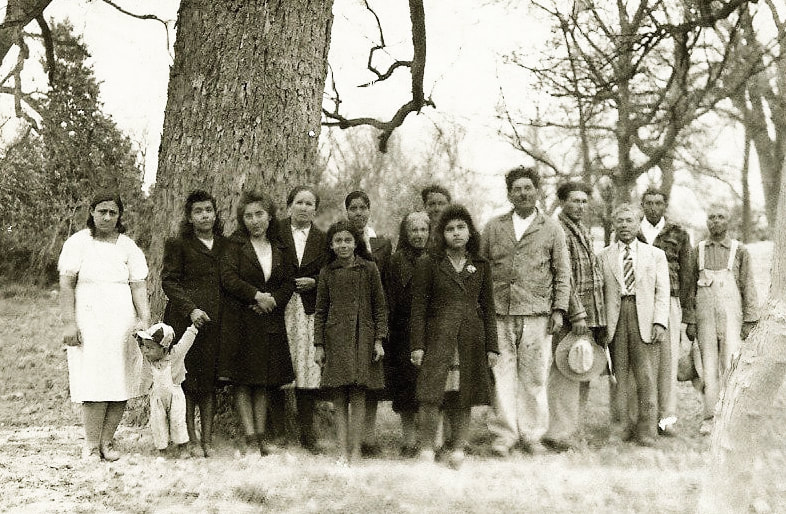
| “Les voy a contar un cuento medio chistoso,” dijo Ventura. “Una vez cuando estaba trabajando en ----, tenía una mujer. Le dije que le iba dejar algo cuando me fuera. Cuando montante mis cosas en el caballo para irme, le dije, “Ven acá para darte tu regalo.” Cuando se acerco, le corte la cara de los dos lados con mi navaja de resurar.’ Y papá le dijo, ‘Si te atreves hacerle un mal a unos de los mios, te juro que te mato.” “¡O no, jefe!” dijo Ventura. “Nunca haría eso.” “I’m going to tell you a funny story,” said Ventura. “Once when I was working at--- (place name forgotten), I had a woman. I told her I’d give her something when I got ready to move on. When [the day came to leave and] I was done loading my horse, I told her, “Come here so I can give you your gift.” When she got close enough, I slashed both sides of her face with my razor.” Papá then said, “If you ever dare to hurt one of mine, I swear I’ll kill you.” “Oh, no, boss!” said Ventura, “I’d never do anything like that.” |
Sometime after that incident, my grandparents went out to Rosales again to bring fresh supplies to the herders. My grandfather noticed some of the animals had separated from the herd and were wandering in the horizon. He immediately set out to retrieve them, and it wasn’t long before Ventura was facing down my grandmother. My mother recalled the moment with terror, as if she were re-living that moment. She remembered his eyes, how they shifted about, a hint of a smile forming on his lips.
“Where’s the boss?” He asked my grandmother.
“Por hay anda,”my grandmother said, meaning close-by, just out of sight.
He looked around quickly. “I don’t see him.”
“He’s here,” she said self-assuredly. She, too, had grown up in desert during the time of the Revolution when young women, especially a young white woman like herself, were the target of rapacious men, revolutionaries and federales alike.
Ventura looked around again, but my grandmother’s cool steadfastness
discouraged him. He took a step back, perhaps remembering my grandfather’s willingness to use his gun. My mother said that when he stepped back, it was as if all of his weight were going forward and he had physically hit a wall. It was unmistakable what he intended to do.
Like all of the transient men of the desert, Ventura was gone not long after.
Even today, straying too far from the springs and troughs can be deadly for cattle. The cowherds guide the cattle back to the ranches or natural springs or to the water troughs. Recently, a cowherd poached some water from us for his herd. He may have been drinking and delayed guiding the cows to their water source. We weren’t mad. The few humans of the desert look out for each other. Natural law prevails for good and sometimes for evil.
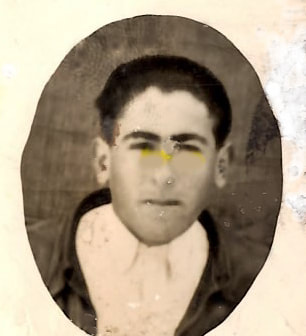 Pedro Apolinar Jr., about 16 years-old
Pedro Apolinar Jr., about 16 years-old “Don’t kill me,” pleaded Pedro Jr.
“I’m not leaving a witness,” the bandit said, and he surely would have fired a shot had not one of his companions stepped in.
“Don’t kill, him. Look at him. He’s just a child.”
In what seemed an eternity, the bandit finally lowered the gun and the group departed, leaving Pedro Jr. stranded without food or transportation. Fortunately for my young uncle, the dog was cowering nearby and unseen by the bandits. Pedro Jr. carried a little notebook all the time to keep inventory and take notes for my grandfather. He tied a note for help on the dog’s collar and sent the dog back to my grandparents. My mother remembered when the dog staggered into the house, and my grandparents’ alarm upon seeing the loyal dog there alone. The police were alerted. By the time my grandfather retrieved my uncle and returned to town, the police had apprehended the bandits.
“Are these the men who robbed you?”
My uncle identified them one by one and added, “That one put the gun to my head, and this one is the one who stopped him from killing me.”
Standing under the full moon of the Nevada desert, I wonder if he sees me invading his dreams at that moment. But even in his dreams, I discover that his mind remains impenetrable. He has become like the desert that absorbed him.
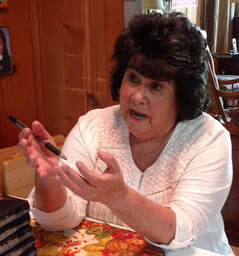
Rosa Martha Villarreal, a retired Adjunct Professor at Consumnes River College in Sacramento, California, is author of several novels important to American literature, including Doctor Magdalena, The Stillness of Love and Exile, and Chronicles of Air and Dreams, and a children's book, The Adventures of Wyglaf the Wyrm. Copyright Rosa Martha Villarreal, 2017.
Archives
February 2024
November 2023
October 2023
January 2023
December 2022
October 2022
August 2022
July 2022
June 2022
May 2022
March 2022
February 2022
December 2021
November 2021
October 2021
June 2021
April 2021
February 2021
January 2021
December 2020
November 2020
October 2020
September 2020
August 2020
July 2020
May 2020
April 2020
March 2020
February 2020
January 2020
December 2019
October 2019
August 2019
July 2019
May 2019
April 2019
March 2019
February 2019
January 2019
December 2018
October 2018
September 2018
August 2018
July 2018
June 2018
May 2018
April 2018
March 2018
February 2018
January 2018
December 2017
March 2017
December 2016
September 2016
September 2015
October 2013
February 2010
Categories
All
2018 WorldCon
American Indians
Anthology
Archive
A Writer's Life
Barrio
Beauty
Bilingüe
Bi Nacionalidad
Bi-nacionalidad
Border
Boricua
California
Calo
Cesar Chavez
Chicanismo
Chicano
Chicano Art
Chicano/a/x/e
Chicano Confidential
Chicano Literature
Chicano Movement
Chile
Christmas
Civil RIghts
Collective Memory
Colonialism
Column
Commentary
Creative Writing
Cuba
Cuban American
Cuento
Cultura
Culture
Current Events
Dominican American
Ecology
Editorial
Education
English
Español
Essay
Eulogy
Excerpt
Extrafiction
Extra Fiction
Family
Gangs
Gender
Global Warming
Guest Viewpoint
History
Holiday
Human Rights
Humor
Idenity
Identity
Immigration
Indigenous
Interview
La Frontera
Language
La Pluma Y El Corazón
Latin America
Latino Literature
Latino Sci-Fi
La Virgen De Guadalupe
Literary Press
Literatura
Low Rider
Maduros
Malinche
Memoir
Memoria
Mental Health
Mestizaje
Mexican American
Mexican Americans
Mexico
Migration
Movie
Murals
Music
Mythology
New Mexico
New Writer
Novel
Obituary
Our Other Voices
Peru/Peruvian Diaspora
Philosophy
Poesia
Poesia Politica
Poetry
Politics
Puerto Rican Diaspora
Puerto Rico
Race
Reprint
Review
Rodolfo "Corky" Gonzales
Romance
Science
Sci Fi
Sci-Fi
Short Stories
Short Story
Social Justice
Social Psychology
Sonny Boy Arias
South America
South Texas
Spain
Spanish And English
Special Feature
Speculative Fiction
Tertullian’s Corner
Texas
To Tell The Whole Truth
Trauma
Treaty Of Guadalupe Hidalgo
Walt Whitman
War
Welcome To My Worlds
William Carlos Williams
Women
Writing
Donate and Make Literature Happen
is published by the Somos En Escrito Literary Foundation,
a 501 (c) (3) non-profit, tax-exempt corporation. EIN 81-3162209

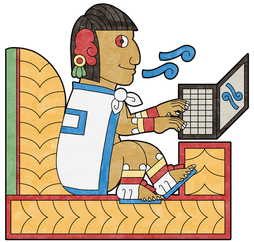
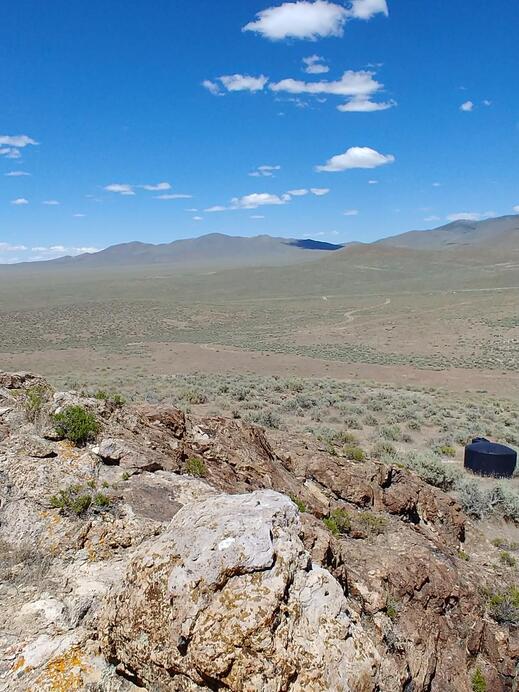
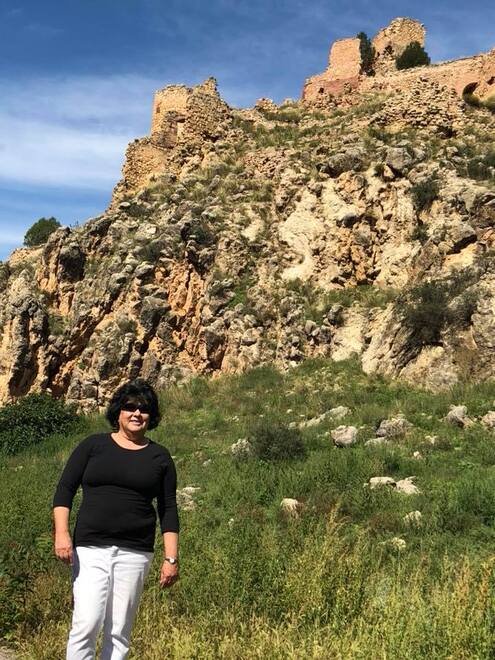
 RSS Feed
RSS Feed